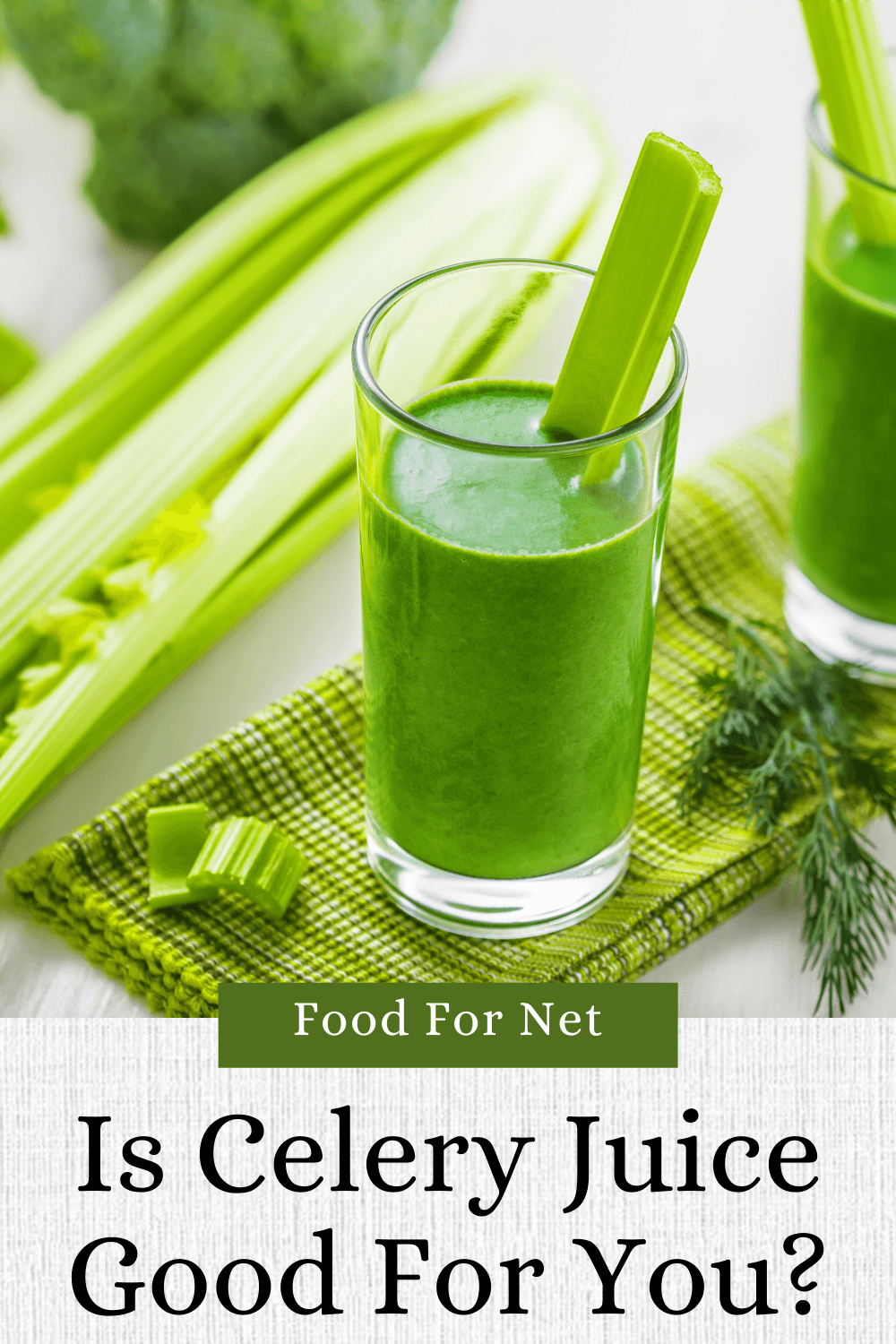
Celery juice has an incredibly reputation these days. It’s often promoted as a detox drink, one that will help to clear out your body and promote weight loss at the same time. There are plenty of anecdotes backing such claims up, but the same is true for most fads, including those that don’t work at all. What’s the story with celery juice, then? Is celery juice good for you or is it yet another trending idea that will blow over quickly?
To answer that, we must look closely at celery juice and how it influences your body.
Also bear in mind that we’re talking about celery juice on its own. You can easily mix celery juice with other ingredients, like ginger, apple juice, cucumber juice, and lime juice to make it taste better. Each new ingredient changes the equation somewhat, giving you a different set of benefits and risks.
Is Celery Juice Good For You?
- Benefits Of Celery Juice
- How Celery Juice Can Be Harmful
- Can Celery Juice Help You Lose Weight?
- Is Celery Juice Good For Detoxing?
- How Do You Make Celery Juice Taste Better?
- Final Thoughts
Benefits Of Celery Juice
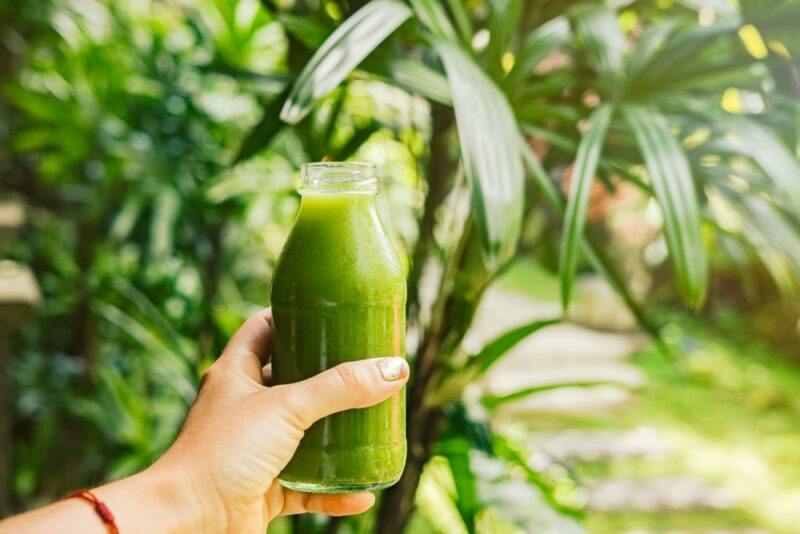
The Nutrient Content
Celery offers some important nutrients, including close to your daily intake of vitamin K in a serving, along with a decent amount of vitamin C, vitamin B6, riboflavin, vitamin A, potassium, and calcium.
Many of these nutrients will be present in celery juice just like they are in celery itself. The nutrients are all very relevant, helping to support your body and keep it functioning well.
For example, vitamin C is often associated with your immune system, helping your body to fight off infection. It’s also relevant for iron absorption and for repairing tissues throughout your body.
There Are Antioxidants Too
Some of the antioxidants from fresh celery carry over into the juice too, including beta carotene. As you might expect, antioxidants help to decrease the amount of oxidation in your body.
Oxidation itself is an important process, but modern diets and lifestyles mean that there’s often too much of it going on – a pattern that can put our health in danger and increase the risk of disease. Getting plenty of antioxidants in your diet helps to keep oxidation at healthy levels, thus protecting your health.
It Can Help Hydrate You
Celery juice contains a decent amount of water, making it useful for keeping you hydrated. The potassium and sodium in the juice actually help here, as these are both electrolytes. You need some of them no matter what and may need more if you often sweat heavily.
The hydration effect is more important than it first sounds – because many of us aren’t getting enough water. We get enough to survive, sure, but it’s surprisingly easy to be mildly dehydrated, which then influences our energy levels, our concentration, and plenty of other things.
Water is still a better choice than celery juice for keeping you hydrated, as you’re getting some sugar and calories with celery juice. Even so, celery juice is a good addition, making it a little easier to get the hydration that you need.
Low In Sugar
A cup of celery juice does contain much more sugar than a cup of celery pieces. That’s not surprising though, as you need multiple cups of the pieces to get a single cup of juice.
Even so, the sugar content of celery juice is relatively low when you compare it to products like orange juice or apple juice. The juice is also much better for you than a cup of soda, there’s no doubt about that.
Reduces Inflammation Too
Some of the plant-based compounds in celery juice can help with inflammation as well. Like oxidation, inflammation is an important process, one that our bodies rely on for healing and fighting off infections.
Too much inflammation, however, causes more harm than good. Many modern diseases have been linked to chronic inflammation, so this isn’t an area to take lightly.
How Celery Juice Can Be Harmful
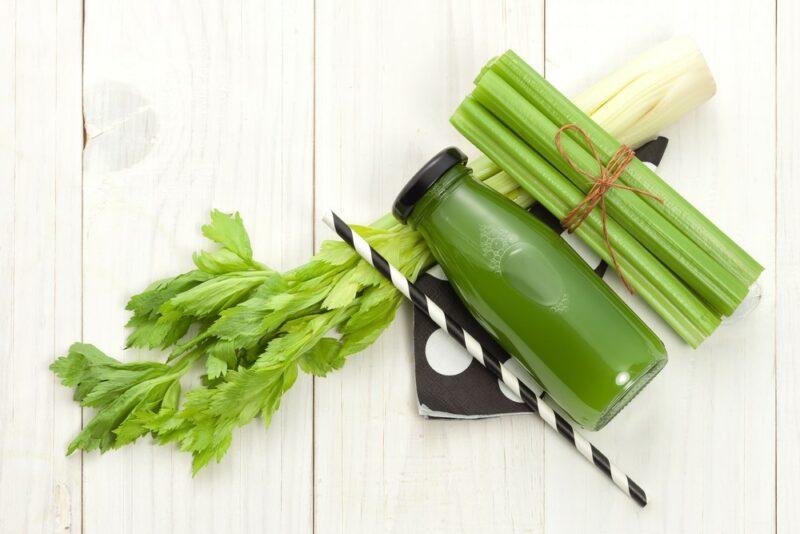
Can Lead To Diarrhea
Drinking too much celery juice often causes digestive side effects, including diarrhea. This happens because of the sugar alcohol mannitol that’s found in celery, which helps to loosen stools.
The mannitol isn’t a big deal when you’re eating celery itself, as the fiber content makes it difficult to eat too much celery at a time. Celery juice doesn’t have this fiber, so it’s easier to overdo it and consume more mannitol than is sensible.
Thankfully, the side effect isn’t long-lived and should dissipate before too long once you cut back on the celery water. Just be cautious if you are already experiencing diarrhea or have a digestive condition like irritable bowel syndrome, as your symptoms could easily be worse in these situations.
If you do end up with diarrhea, it’s important to drink plenty of water and get some electrolytes back into your system.
Often Contains Additives
If you’re buying celery juice from the grocery store, it probably contains more than just celery. Some companies add other types of juice to make the drink taste better. Doing so increases the sugar content, which isn’t ideal.
Some companies also rely on preservatives, artificial flavors, or artificial sweeteners. Such ingredients are highly controversial and are often thought to cause harm. Even if they are relatively benign, they certainly don’t offer health benefits.
To avoid this problem, it’s best to make celery juice yourself or focus on high-quality brands that don’t use additives. Anywhere that prepares celery juice fresh could be good as well, as long as they don’t add other types of fruit juice into the mix.
May Spike Your Blood Sugar Levels
Celery itself is often used to help stabilize blood sugar, as it’s rich in fiber and is a low GI food. Whether this effect applies to celery juice as well is more debatable.
Given that celery juice is low in fiber and a more concentrated source of sugar than celery itself, it isn’t likely to help with your blood sugar levels. Even celery juice with no additions could easily be a problem, while celery juice with extra sugar is almost guaranteed to increase your blood sugar levels.
Celery Is High In Pesticides
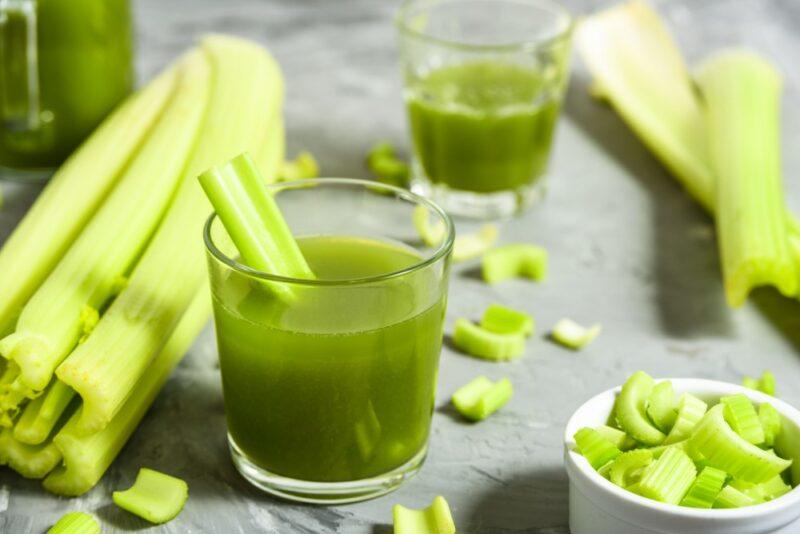
Celery ranks in 11th place on EWG’s Dirty Dozen list for 2021. This list looks at the 12 types of fruit and vegetables with the most pesticide residues after washing.
These pesticide residues are concerning because we don’t really know what they’re doing to our health. It’s easy to assume that they’re benign, especially as we’re only talking about residues, but research doesn’t really account for the fact that we’re eating foods with pesticides most days for decade upon decade.
Who knows what the long-term health effects are?
Focusing just on organic food gets expensive quickly. One way around this is to buy organically for the items on the dirty dozen list and worry less about anything that doesn’t feature on that list.
As such, organic celery is the way to go.
This is easy enough if you’re juicing the celery yourself. If you’re buying celery juice, however, there’s a good chance that organic celery wasn’t used, so you’re likely to be exposed to some pesticide residues.
Can Be High In Sodium
Celery is surprisingly high in sodium for a vegetable. This isn’t a huge problem when you’re eating celery itself, as celery is high in fiber and you don’t eat that much at a time.
Celery juice is a different story. It becomes a much more concentrated source of sodium and could be risky for anyone who needs to moderate their sodium intake.
This is something to take seriously, as many of us get too much sodium in our diets. This excess sodium can cause a variety of problems, including raising blood pressure and increasing heart disease risk.
If you’re concerned about sodium at all, it’s best to give celery juice a miss. While the drink is healthier than many other sodium rich foods and drinks, you can get similar benefits from plenty of other foods – ones that contain much less sodium.
Can Celery Juice Help You Lose Weight?
Celery juice is often promoted as a weight loss too, largely because celery itself is low in calories, rich in fiber, and does help with your weight.
But, celery juice is a completely different story. It doesn’t contain all the fiber that you get with celery stalks and ends up being a more concentrated source of sugar and sodium instead. The lack of fiber means that celery juice isn’t greatly filling either.
As such, most of the weight loss benefits of celery simply aren’t present in the juice.
The most useful feature is how celery juice can help hydrate you, as getting plenty of water does promote weight loss. However, you’ll see more benefits from just drinking water.
Is Celery Juice Good For Detoxing?
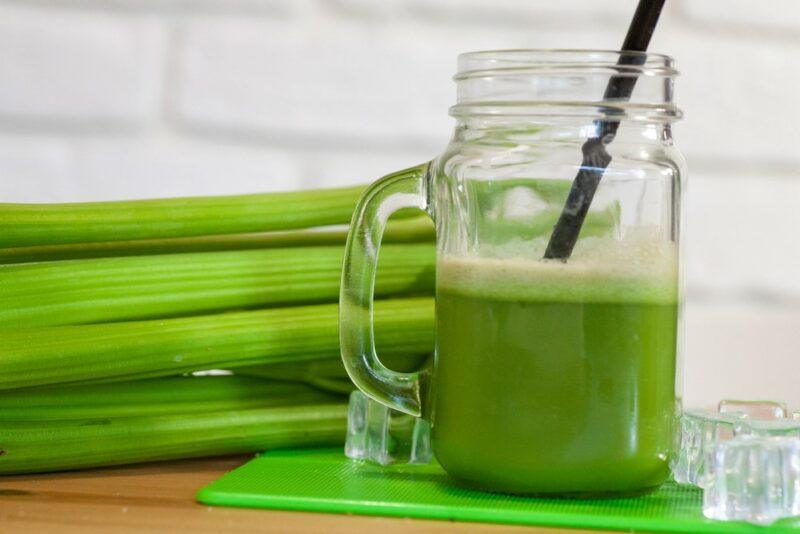
Celery juice is often promoted as a detox drink. Sounds fantastic, right? Detox products are meant to flush toxins out of your body, make your liver function better, and improve your health in the process.
In practice, our bodies don’t work like that. Our liver and kidneys are the chief organs in the detox process, while the colon, lungs, skin, and lymphatic system are relevant as well.
These systems work well on their own, unless you’re sick. You can’t suddenly make these organs work much better by doing a detox diet or focusing on detox drinks.
The best way to improve your ability to detox is to get plenty of vitamins and minerals in your diet, along with sufficient water. Celery juice doesn’t really help in this regard, as there are plenty of more nutrient dense options out there.
For that matter, relying heavily on detox diets or drinks can end up putting your health at risk. Such approaches often mean that you’re dramatically cutting down your calorie intake or only consuming a small selection of food. Doing so regularly or for extended periods puts you at risk of nutrient deficiencies.
How Do You Make Celery Juice Taste Better?
On its own, celery juice is a bitter drink that few people enjoy. The best way around the problem is to combine it with some sweetness, often in the form of another type of juice.
Celery and lime juice is a simple combination to try. The lime knocks the edge off the bitterness of the celery, without adding many calories.
Other recipes are more complex, adding three or four ingredients to the mix. Doing so gives you a more nuanced drink that actually tastes good. This recipe from Detoxinista is one example, as the creator matches celery juice with apple juice, ginger, cucumber, and lemon.
This version, and many others like it, ends up being a drink that you’re likely to enjoy, rather than one that’s difficult to get down. You may get some benefits from the ginger and lemon as well.
The catch is that adding sweetness to balance out the taste of celery means that your drink contains more sugar than it would otherwise. This isn’t a great feature, as most of us should probably be consuming less sugar, not more of it.
Having sugar in a health tonic isn’t hardly ideal.
Final Thoughts
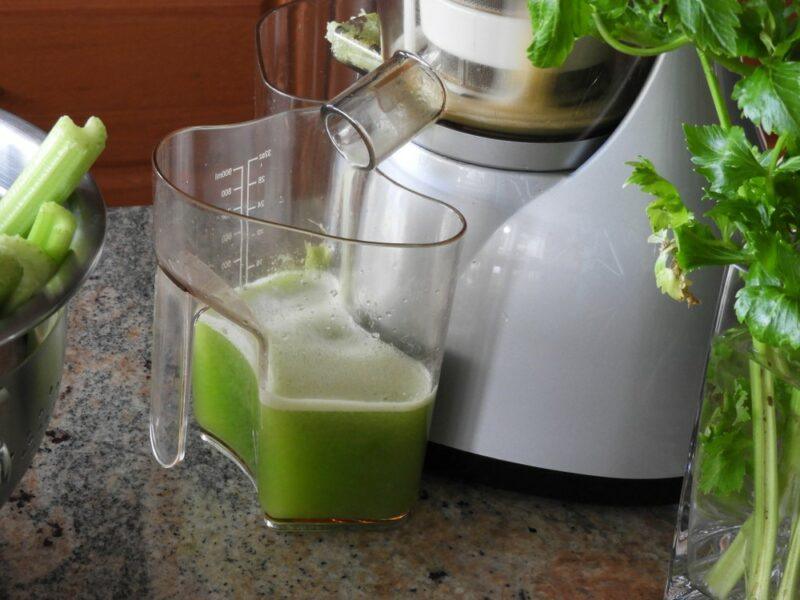
Celery juice does offer some benefits, but it’s not the amazing health tonic that it’s often promoted as. Instead, as is often the case, you’ll get more benefits from focusing on celery itself, rather than turning to celery juice.
If you are going to turn to the juice, watching your portion sizes is important. The sodium content can sneak up on you, plus there’s the mannitol, which can lead to diarrhea if you consume too much.
It’s best to choose your products well too, as so many companies use additives in their celery juice. In fact, if you have a juicer, why not skip the middleman and make celery juice yourself? Doing this gives you a fresher product that’s guaranteed to be free from additives.
Frequently Asked Questions
How Much Celery Juice Should You Drink A Day?
Many people suggest that around 16 ounces of celery juice is a good place to begin. This requires around 9 stalks of celery to make and gives you a variety of nutrients.
You could increase this further, perhaps up to 24 or even 32 ounces per day.
What’s The Best Time To Drink Celery Juice?
Celery juice is often recommended first thing in the morning, on an empty stomach. Drinking it then is thought to be most powerful for detoxing and setting you up for the day.
However, drinking celery juice in the morning is a suggestion that comes from Anthony William’s celery juice diet. It tends to simply get repeated across various blogs and advice channels. There’s no evidence that drinking celery juice in the morning is actually any more powerful.
What Does Celery Juice Taste Like?
Celery has a distinct grassy flavor with a little saltiness and this flavor carries through to celery juice. It isn’t over-the-top though. Instead, the taste tends to be fairly bland.
Let me put it this way – celery juice isn’t something you’d choose for its flavor. Instead, it’s the potential benefits that keep people drinking it regularly.
Does Celery Juice Give You Diarrhea?
Some people do experience diarrhea and other digestive side effects after drinking celery juice. This is often quoted as being a detox side effect, with advocates suggesting you should keep drinking the celery juice anyway.
However, digestive effects can also be caused by mannitol. This is a naturally occurring carbohydrate that can be tough for our bodies to handle. Regular side effects from celery juice might be a sign that your body doesn’t handle the mannitol well.
Is Celery Juice Good For High Blood Pressure?
The nutrients and plant-based compounds in celery juice could be relevant for blood pressure. However, it’s important to be cautious if you’re relying on celery juice and blood pressure medication, as the combination could decrease your blood pressure levels too far.













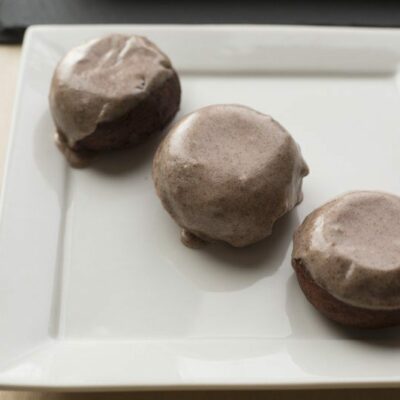



 12 Best Foods For Nitric Oxide, Plus Three Common-Sense Strategies For Eating More Nitric Oxide Foods
12 Best Foods For Nitric Oxide, Plus Three Common-Sense Strategies For Eating More Nitric Oxide Foods
Leave a Reply